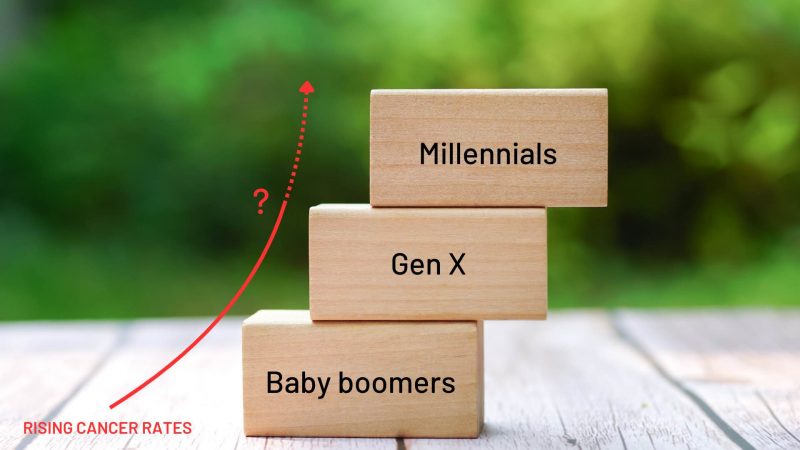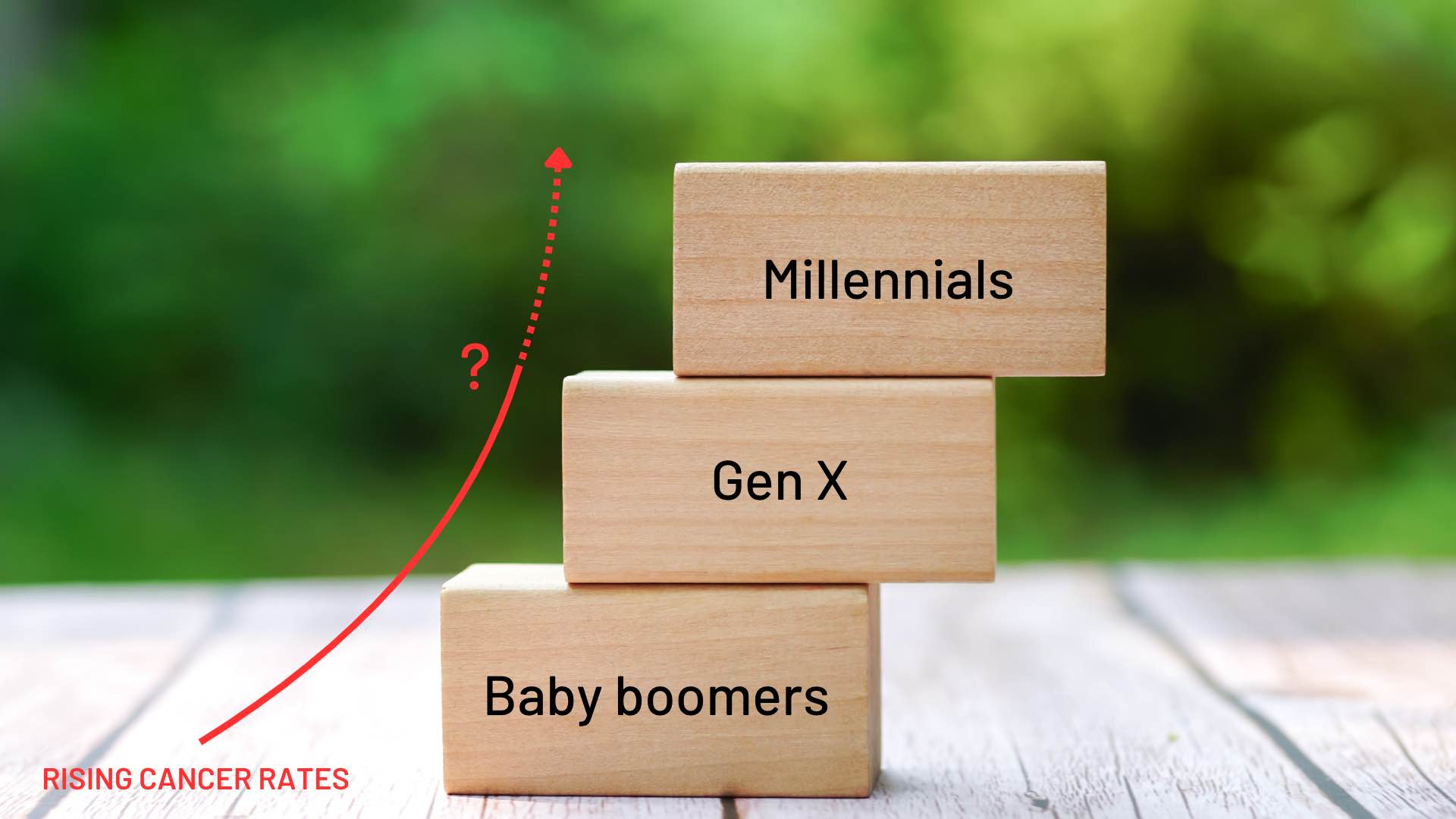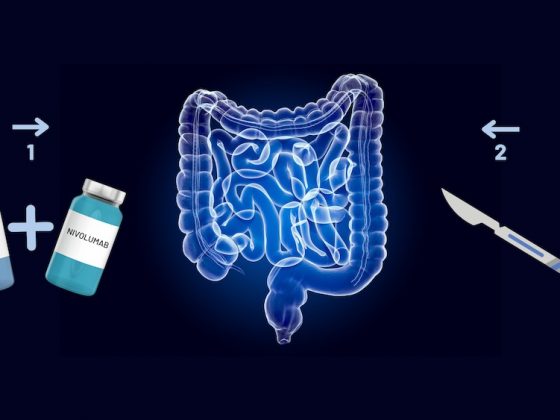At age 60 members of Generation X, defined as people born between 1965 and 1980, are projected to have higher rates of cancer than Baby Boomers, born between 1946 and 1964. The US modelling study, published online in JAMA OpenNetwork, 10 June, revealed that, among Generation X men, declines in lung, liver, and gallbladder cancers and non-Hodgkin lymphoma have been overtaken by gains in thyroid, kidney, rectal, colon, and prostate cancers, and leukaemia. Among Generation X women, statistically significant declines in lung and cervical cancers have been overtaken by significant increases in thyroid, kidney, rectal, corpus uteri, colon, pancreatic, and ovarian cancer, and non-Hodgkin lymphoma, and leukaemia.
“The models in this cohort study suggest that Generation X is experiencing larger per-capita increases in the incidence of leading cancers combined than any prior generation from 1908 through 1964,” write the authors Philip Rosenberg and Adalberto Miranda-Filho, from the National Cancer Institute in Bethesda, Maryland. “If the Millennials’ cancer experience follows the estimated trajectory of their proxy parents, cancer incidence in the U.S. could remain unacceptably high for decades to come.”
In the study Rosenberg and Miranda-Filho set out to address the question of whether cancer incidence in successive social generations in the US was slowing or growing. First, the investigators analysed data on people with invasive cancer diagnosed between the ages of 35 and 84 years, recorded in the National Cancer Institute’s Surveillance, Epidemiology, and End Results (SEER) Program’s 13-registry database.
Then, they used the data to calculate cancer rates for several defined generations using a tool called the age-period-cohort model that captures the net impact of three factors: age effects (representing the underlying biology of cancer, such as the role of ageing), period effects (temporal trends relating to specific events such as introduction of new carcinogens or changes in diagnostic criteria), and birth cohort effects (related to collective lifestyle changes or environmental exposures experienced at the same life stage). The way cancer rates changed with time was expressed using fitted cohort pattern incidence rates that calculate the rates of different cancers per 100,000 person-years for different birth cohorts at the age of 60.
In total, the investigators analysed 3.8 million cases of incident cancer occurring over 521 million person-years.
Results for men showed that the fitted cohort pattern incidence rate ratios in Generation X vs Baby Boomers were significantly increased for thyroid (2.16; 95%CI 1.87–2.50), kidney (2.14; 95%CI 1.86–2.46), rectal (1.80; 95%CI 1.52–2.21), colon (1.60; 95%CI 1.32–1.94), and prostate (1.25; 95%CI 1.03–1.52) cancers, and leukaemia (1.34; 95%CI 1.08–1.66).
Results for women showed that the fitted cohort pattern incidence rate ratios in Generation X vs Baby Boomers were significantly increased for thyroid (2.76; 95%CI 2.41–3.15), kidney (1.99; 95%CI 1.70–2.32), rectal (1.84; 95%CI 1.52–2.22) , corpus uterine (1.75; 95%CI 1.40–2.18), colon (1.56; 95%CI 1.27–1.92), and pancreatic (1.39; 95%CI 1.07–1.80) cancers, non-Hodgkin lymphoma (1.40; 95%CI 1.08–1.82), and leukaemia (1.27; 95%CI 1.03–1.58).
Among men, fitted cohort pattern incidence rate ratios in Generation X vs Baby Boomers were significantly lower for lung (0.51; 95%CI 0.43–0.60), liver (0.76; 95%CI 0.63–0.91), and gallbladder (0.85; 95%CI 0.72–1.00) cancers, and non-Hodgkin lymphoma (0.75; 95%CI 0.61–0.93).
Among women, fitted cohort pattern incidence rate ratios in Generation X vs Baby Boomers were significantly lower for lung (0.60; 95%CI 0.50–0.72) and cervical (0.71; 95%CI 0.57–0.89) cancers.
The researchers also found rates of cancers differed by race, with Hispanic women shown to have the greatest increase compared with their parents (34.9%).
“The substantial increases we identified in Generation X vs both Baby Boomers and their proxy parents surprised us,” write the authors. “Numerous preventable causes of cancer have been identified. Cancer control initiatives have led to substantial declines in tobacco consumption. Screening is well accepted for precancerous lesions of the colon, rectum, cervix, uterus, and breast. However, other suspected carcinogenic exposures are increasing.” Some portion of these increases can be attributed to rising obesity rates and increasingly sedentary lifestyles, they add.
“Our results beg the question of what the cancer experience may be like among the 72 million Millennials (1981–1996) when they enter their 40s, 50s and 60s,” write the authors.
Preventive actions to diminish cancer risks, including reducing tobacco and alcohol use, increasing physical activity, improving dietary habits, and promoting breast feeding, are not being adopted by all sectors of the population. Access to healthy lifestyles, write the authors, is hampered by income inequality, deficits in the built environment, and other factors that make it difficult for everyone to eat healthily and stay active.
“Taken together, these findings indicate that for many people in the US, a healthy lifestyle remains, to various degrees, an unattainable privilege rather than a fundamental right. The extent to which lifestyle disparities explain rising generational cancer rates in our data and falling life expectancies in other studies is unclear and in our view, merits further study,” conclude the authors.












